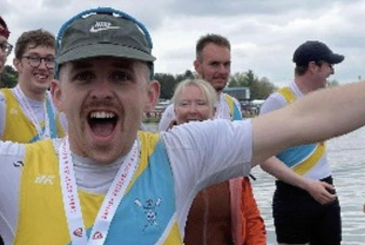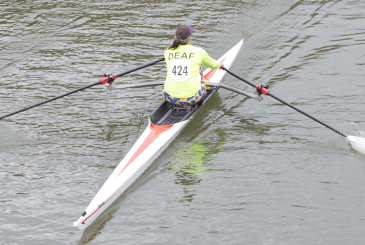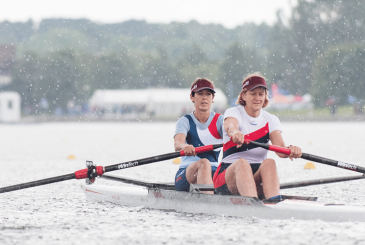Are you getting enough sleep? British Rowing Sports Scientist (Physiology) Sarah Moseley explores the science behind sleep and recovery
Sleep is one of the most important but overlooked aspects of health, wellbeing and performance. Ensuring that you have sufficient sleep on a regular basis is essential for supporting the physical and psychological demands of training and competition. So can you improve your performance by simply getting more sleep?
Training and recovery are both central to competitive success and striking the perfect balance is essential for performing at your best. Research suggests that improved sleep quality – and quantity – may reduce the risk of both injury and illness in athletes, not only supporting health but also improving performance.
The occasional night of poor sleep is unlikely to have a negative impact on health and performance, however longer-lasting poor sleep can increase daytime fatigue and irritability and result in a decrease in motivation, concentration and immune function.
Everyone has their own sleep needs – and as such, there is no one set of rules that can be applied to everyone. However, a number of studies have found that athletes often fail to obtain the recommended amount of night-time sleep. Between seven to nine hours per night is advised by the National Sleep Foundation. This is particularly the case for those athletes with early morning training schedules such as rowers and swimmers.
Managing your sleep
Factors such as international travel, academic studies, stress, social expectations, and training and competition times can all have an influence on sleep schedules. It is important to recognise how much sleep you need in order to function at your best and identify when you may be vulnerable to poor sleep so that you can manage it effectively. Trying to follow a set of generic recommendations can create pressure and worries around sleep, which is counterproductive. Instead, aim for an amount of sleep that allows you to minimise daytime fatigue and maximise feelings of alertness and concentration.
Top tips
Tip 1 – Sleep environment
Create a sleep environment that is optimal for you and keep it for sleep and other restful activities. You may wish to consider bed comfort, room temperature, lighting and noise disturbances. While everyone has their own preferences, a cool (approximately 18°C), quiet and dark room is considered to be ideal for sleep.
Tip 2 – Adapt to your daytime schedule
If you are entering a high period of stress or your training schedule requires you to get up early in the morning, for example, try to balance this by going to bed earlier in the evening. This takes commitment, just like training and it may require you to catch up on your favourite TV programme the following day.
Tip 3 – Top up sleep with a daytime nap
Taking a daytime nap helps to reduce feelings of sleepiness and fatigue, and improves daytime performance. A nap of less than 30 minutes can be taken between 1pm and 4pm, if your schedule allows it. In fact, your body clock is programmed to make you feel sleepy in the middle of the afternoon. During this period there is a natural fall in core body temperature resulting in a temporary increase in feelings of sleepiness. While you may be tempted to close your eyes for longer, lengthy naps increase the risk of entering into a deep sleep, resulting in feeling sleepy and groggy when you wake up. And nap too close to bedtime and you may find yourself struggling to fall asleep at night.
Tip 4 – Be prepared for sleep disruption
One way to prepare for sleep disturbances is through minimising pre-existing sleep debt through ‘sleep banking’. If you are entering a period where you may be susceptible to sleep disruption, try to extend your sleep in the days leading up to this period to minimise any health or performance impact.
This article was first published in Rowing & Regatta magazine in October 2019.










